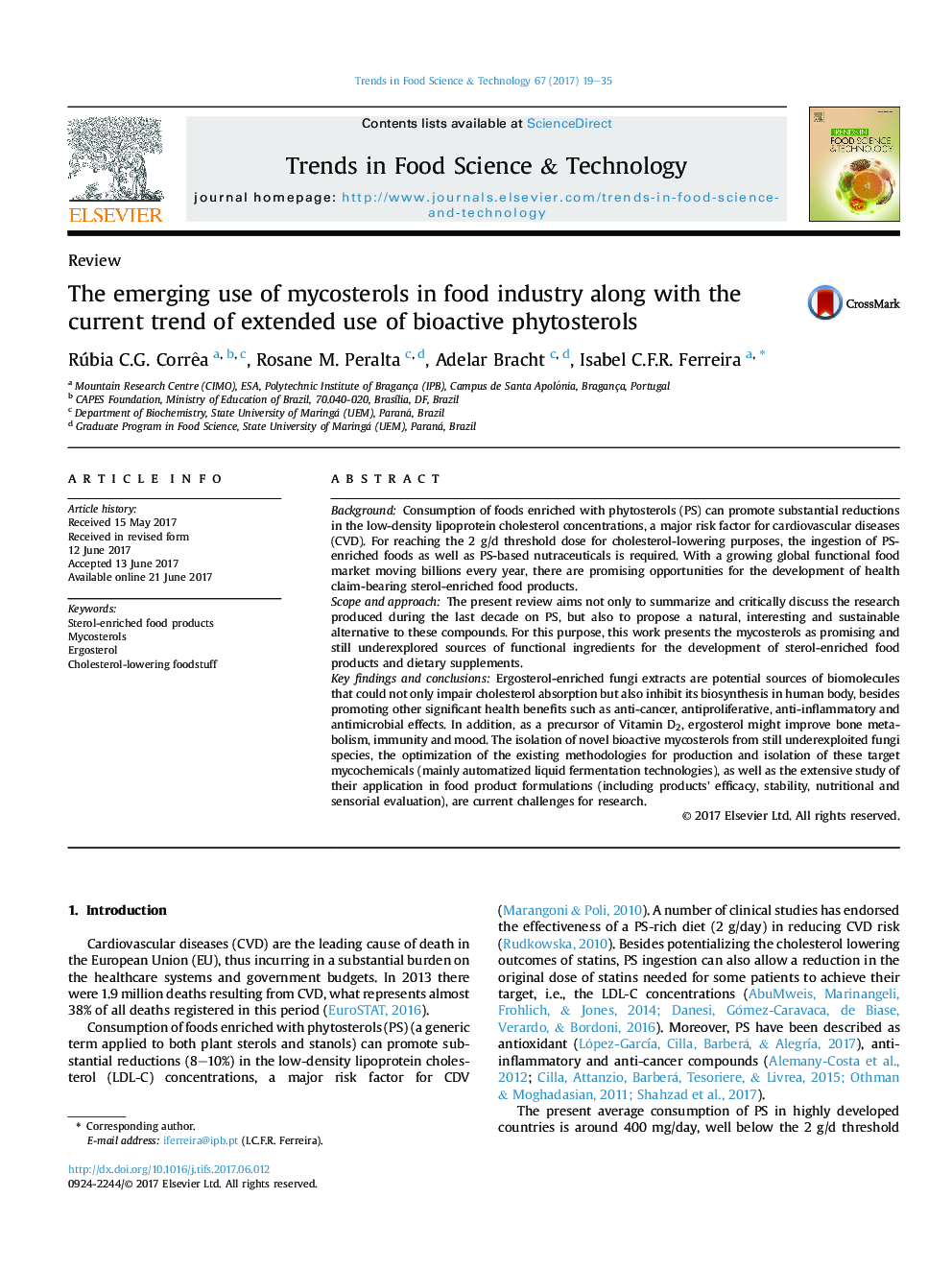| Article ID | Journal | Published Year | Pages | File Type |
|---|---|---|---|---|
| 5523593 | Trends in Food Science & Technology | 2017 | 17 Pages |
â¢Sterol-enriched foods consumption can effectively reduce cardiovascular disease risk.â¢Mycosterols are promising and underexplored ingredients for sterol-enriched foods.â¢Ergosterol extracts can impair cholesterol absorption and inhibit its biosynthesis.â¢Mycosterols also possess anti-cancer, anti-inflammatory and antimicrobial effects.â¢As a precursor of Vitamin D2, ergosterol might promote additional health benefits.
BackgroundConsumption of foods enriched with phytosterols (PS) can promote substantial reductions in the low-density lipoprotein cholesterol concentrations, a major risk factor for cardiovascular diseases (CVD). For reaching the 2Â g/d threshold dose for cholesterol-lowering purposes, the ingestion of PS-enriched foods as well as PS-based nutraceuticals is required. With a growing global functional food market moving billions every year, there are promising opportunities for the development of health claim-bearing sterol-enriched food products.Scope and approachThe present review aims not only to summarize and critically discuss the research produced during the last decade on PS, but also to propose a natural, interesting and sustainable alternative to these compounds. For this purpose, this work presents the mycosterols as promising and still underexplored sources of functional ingredients for the development of sterol-enriched food products and dietary supplements.Key findings and conclusionsErgosterol-enriched fungi extracts are potential sources of biomolecules that could not only impair cholesterol absorption but also inhibit its biosynthesis in human body, besides promoting other significant health benefits such as anti-cancer, antiproliferative, anti-inflammatory and antimicrobial effects. In addition, as a precursor of Vitamin D2, ergosterol might improve bone metabolism, immunity and mood. The isolation of novel bioactive mycosterols from still underexploited fungi species, the optimization of the existing methodologies for production and isolation of these target mycochemicals (mainly automatized liquid fermentation technologies), as well as the extensive study of their application in food product formulations (including products' efficacy, stability, nutritional and sensorial evaluation), are current challenges for research.
